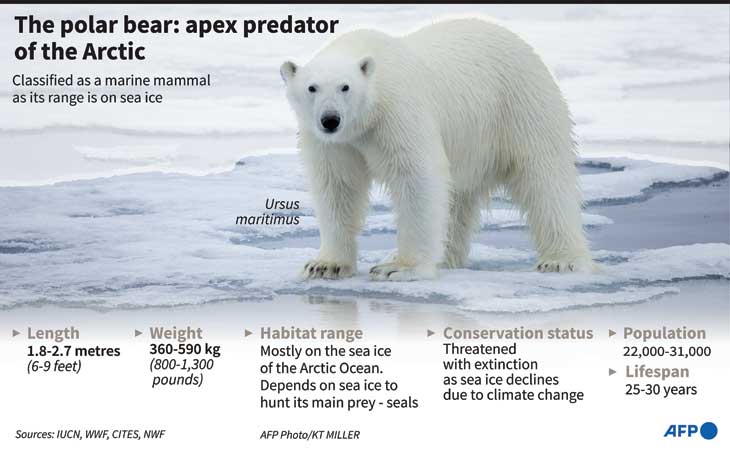

PARIS: Hungry polar bears are increasingly foraging on seabird eggs as climate change shrinks their Arctic hunting grounds, but research published on Wednesday on the phenomenon highlights the struggle these apex predators have to adapt to their rapidly changing environment.
The climate change threat to polar bears is well known, driven by the extraordinary pace of change in the Arctic, which is warming twice as fast as the planet as a whole.
This is already leading to dwindling sea ice, cutting short the time they have to hunt seals, their preferred prey.
With a growing imperative to find alternative sustenance, polar bears have been pushed further afield in search of food, including scavenging in areas populated by humans.
Some bears are also coming ashore at the same time seabirds are nesting and are snacking on their eggs.
To measure how efficient these top-of-the-food-chain predators were at this foraging — and therefore how useful the eggs are to provide energy in their diets — researchers in Canada used drones to monitor them feeding from common eider duck nests on Mitivik Island, in Nunavut.
INEFFICIENT HUNTING
The study, published in the journal Royal Society Open Science, tracked how the bears approached the nesting site over a period of 11 days, as the number of eggs were depleted.
“We found that later-arriving bears increasingly visited more empty nests and did not travel in an energy-minimising way, but became less picky in the clutches they consumed,” said lead author Patrick Jagielski, of the Great Lakes Institute for Environmental Research at the University of Windsor. Bears also did not consistently realise that the sudden appearance of a fleeing eider hen meant eggs were nearby.
“This study demonstrates that, while species are able to incorporate ‘less preferred’ resources into their diet when their primary prey becomes more difficult to obtain, they may not be able to do so efficiently,” the authors said. — AFP
Oman Observer is now on the WhatsApp channel. Click here



